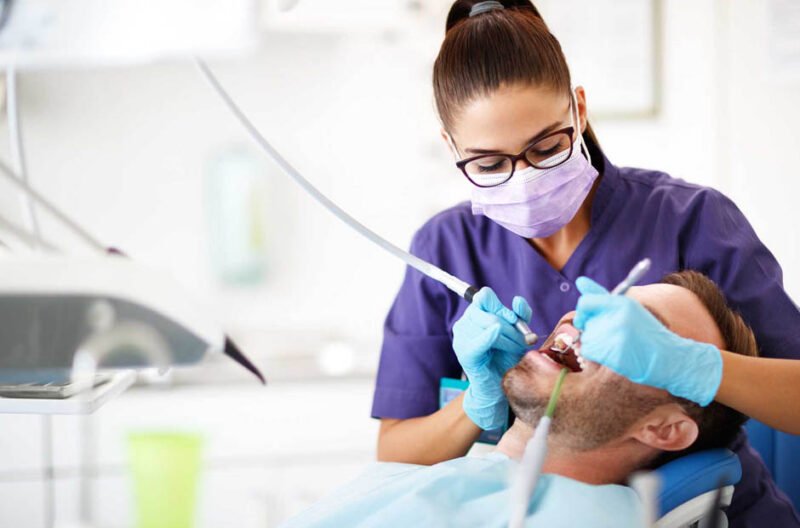
As a dentist, your practice requires meticulous attention to detail and a well-equipped arsenal to ensure you provide top-notch patient care. From routine checkups to complex procedures, having the right tools at your disposal is essential for delivering optimal results and maintaining a seamless workflow. In this blog, we’ll explore the must-have items that every dentist should have in their toolkit.
Diagnostic Tools
A comprehensive set of diagnostic tools is crucial for assessing patients’ oral health. This includes dental mirrors, explorers, and probes for examining teeth and gums, as well as X-ray equipment for capturing detailed images of the oral cavity.
Sterilization Equipment
Maintaining a sterile environment is paramount in any dental practice. Autoclaves, ultrasonic cleaners, and sterilization pouches ensure that instruments are properly disinfected between uses, minimizing the risk of cross-contamination and infection.
Dental Chairs and Operatories
Comfortable and ergonomic dental chairs are essential for both patient comfort and practitioner efficiency. Equipping each operatory with essential tools, such as high-speed handpieces, low-speed handpieces, and suction devices, facilitates smooth treatment delivery.
Anesthetic Supplies
Local anesthetics are frequently used to numb the area before dental procedures, ensuring a pain-free experience for patients. Stocking up on anesthetic cartridges, syringes, and topical gels is essential for administering anesthesia safely and effectively.
Restorative Materials
From composite resins to dental amalgam, having a variety of restorative materials on hand enables dentists to repair cavities, restore damaged teeth, and improve aesthetics. Additionally, materials for temporary crowns and bridges are essential for interim solutions before permanent restorations are carried out.
Periodontal Instruments
Maintaining healthy gums is a cornerstone of good oral hygiene. Periodontal instruments such as scalers, curettes, and periodontal probes are indispensable for treating gum disease and performing periodontal maintenance procedures.
Endodontic Supplies
Root canal therapy is a common procedure aimed at saving infected or damaged teeth. Essential endodontic supplies include files, reamers, and gutta-percha points for cleaning and filling the root canal system, as well as rotary instruments for efficient shaping.
Orthodontic Tools
For patients requiring orthodontic treatment, having a range of orthodontic instruments is essential. This includes braces, arch wires, ligatures, and elastics for correcting malocclusions and achieving optimal bite alignment.
Patient Education Materials
Educating patients about oral hygiene practices and treatment options is key to promoting oral health and preventing dental problems. Providing informative brochures, visual aids, and interactive models helps patients to understand their oral health needs and treatment plans better.
Emergency Equipment
Despite meticulous planning, dental emergencies can arise unexpectedly. Being prepared with emergency medications, oxygen tanks, and defibrillators can mean the difference between saving a life and facing a tragic outcome.
Personal Protective Equipment (PPE)
In the wake of the COVID-19 pandemic, the importance of PPE can’t be overstated. Stocking up on face masks, gloves, gowns, and face shields ensures the safety of both dental professionals and patients during treatment.
Administrative Supplies
Beyond clinical tools, administrative supplies such as appointment books, patient records, and billing software are essential for managing the day-to-day operations of a dental practice efficiently.
In conclusion, the dental profession demands precision, expertise, and a commitment to excellence. By equipping your practice with the essential items outlined above, you can ensure that you’re well prepared to deliver exceptional care to your patients while maintaining a safe and efficient working environment.
Investing in high-quality tools and staying abreast of advancements in dental technology will not only enhance patient satisfaction but also contribute to the long-term success of your practice.









